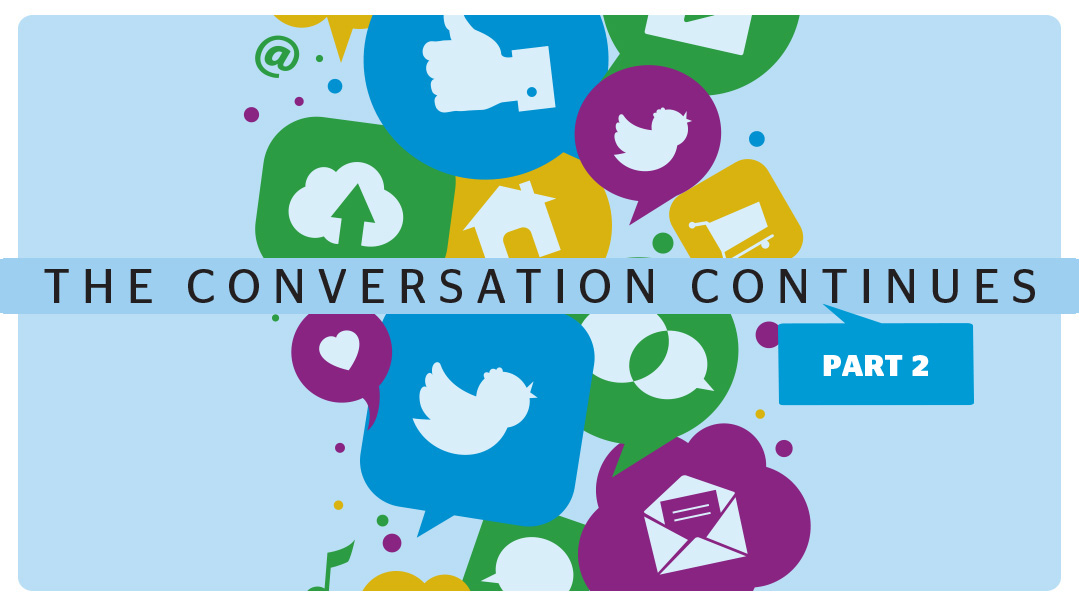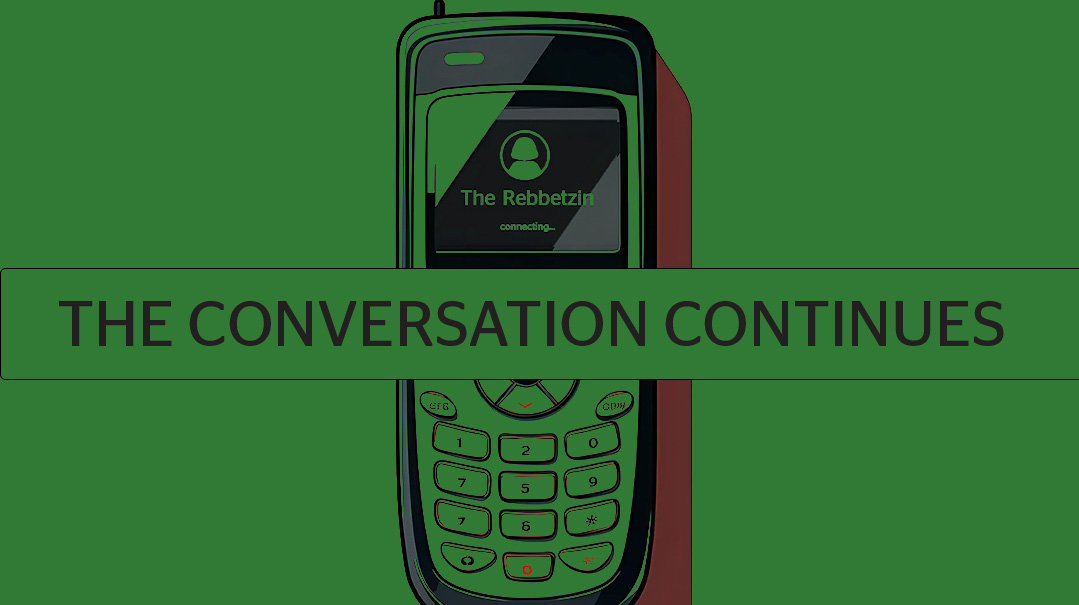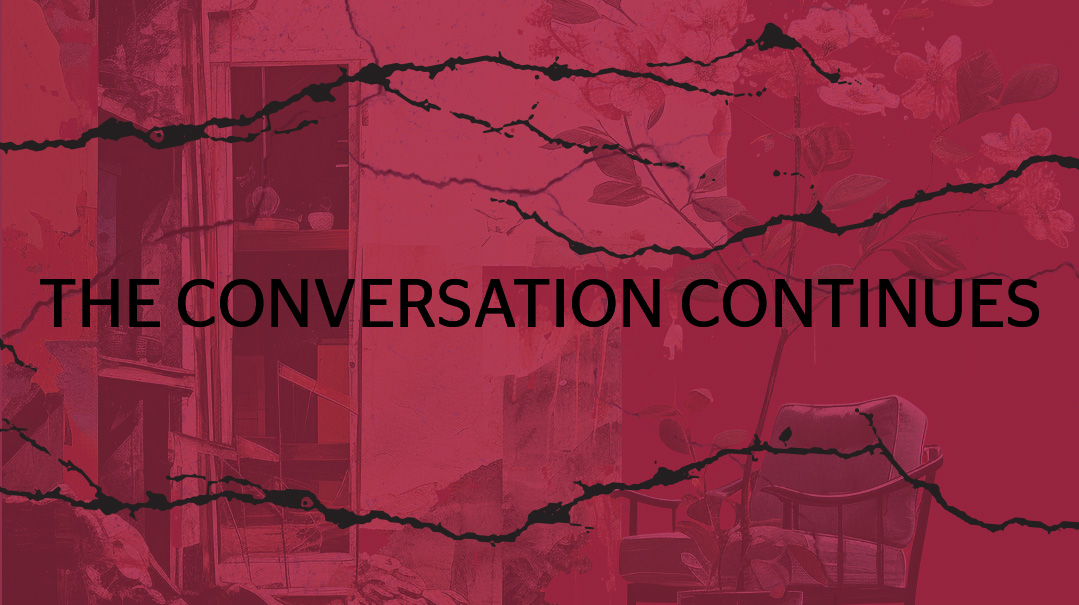Follow Me Where? The Conversation Continues Part 2

“By nature, man is influenced by the conduct and views of his peers… and follows the customs of his fellow countrymen”

The Blind Leading the Blind
A Worried Mechaneches
I’ve been teaching for 27 years now, making my way up from seventh grade to high school. I currently teach in three high schools in New York; each year I have 200-plus students.
Social media is not something I know at all. I have a flip phone, own a laptop that I use only in the school office, and have no idea what the differences between all the platforms are.
I have a close relationship with my students, and I speak to my 12th-graders about the perils of online forums and social media. In reading your recent series “Follow Me Where,” I realized that I was out of my depth.
My daughter-in-law is an artist. When I asked her something about the article — how Sarah Rivkah Kohn, in Memo to Self, mentioned frum people wishing others Happy Valentine’s Day — my daughter-in-law stunned me by telling me that if I were open to it, she’d tell me all about her presence on social media. I’d had no idea that that was how she was selling; in fact, I’d embarrassingly told my students that my relative sells lots of art without resorting to using social media.
After I read your series, I called my principal and said, “This needs further conversation, but we need to find some teachers who know far more details and nuance to talk to our students about this, because the danger of someone who just doesn’t know it doing the talking means we look like fools — and worse, we aren’t effective.” I was railing all about shemiras einayim and didn’t touch on any of the other points mentioned in your articles because I just didn’t know they exist.
No, we don’t want teachers who are influencers or who will send a mixed message, but we sure need people who are better versed or we’re the blind leading the blind.
This series caused me a lot of agmas nefesh and also a lot of important introspection. I would love to hear how other mosdos in insular communities are walking this tightrope — or are we all in the same bind?
Don’t Cheat Yourself
Name Withheld
I’d like to comment on the conversation on social media.
Yes, we are worried about the dangers and the inappropriate content. But in general, that’s not what concerns me when I see my family and friends on social media. I’m more bothered by the subtle dangers — like, time-wasting (I have memories of my mother waiting for my bus saying Tehillim. Has the phone replaced that?) and distraction from reality. Most of all, I feel like social media users are cheating themselves of real meaning and truth in their lives.
I hear people say, “I follow her for the inspiration” or “she has great parenting tips.” How often do these influencers come with Torah sources? When an on-trend woman with three barefoot kids on the sand in the background is your source of learning, it’s very upsetting. Even if they may have some nice things to say, the content is muddied by the noise and lifestyle choices, whatever they may be. These users are missing out; they don’t know the feeling of a Torah shiur ringing true, how fulfilling it is to know you are gleaning lessons from an ultimate source of truth.
They crave learning, they are willing to hear — but they are shortchanged with what they are receiving.
Please, buy a book on practical halachah, listen to a parenting series. There are even many entertaining, easy-to-hear shiurim available. Don’t cheat yourself: The Torah has everything to offer.
Who Provides Our Paycheck
Another Interior Designer in Lakewood
I would like to follow up on “How Did This Become Kosher?” by Concerned in Lakewood.
Like her, I too am an interior designer who’s stayed off Instagram and all social media platforms.
I recently was exploring LinkedIn, wondering if I should be using it for my business — after all, it’s a site for professionals. I was horrified to see the pictures that were posted as well as the comments and compliments exchanged between men and women, some by very respectable people. If we wouldn’t interact like that in person, how can it be okay on another platform?
Besides the inappropriate content and banter, I learned that even the platforms that claim to have your business interests in mind (such as LinkedIn), are designed to ensnare you without your realizing it.
Business-related or not, as Jews we live by different standards. The same One that tells us kedoshim tihiyu is the One Who provides our paycheck.
When You Leave the Classroom
A.S. Whiteman
The letter from a teacher who was dismayed at seeing how her students seem to embrace technology immediately after they graduate, despite everything the school advised them, struck a deep chord. As a recent graduate, I understand the teacher’s frustration as I see this struggle to fight technology in the girls around me. I want to point out two things:
Although it may seem that your lessons went to waste when you see former students walking around with smartphones, I can tell you that in this tremendous battle that we are fighting, there are small victories taking place all the time — no doubt a result of the classes we had. There’s the girl whose entire family has smartphones; although she also got a smartphone, she didn’t join the extended family WhatsApp group; there’s the girl who recently removed her Instagram account; there’s another friend who works in an office with Internet but resists the trend to spend her free time shopping online. The battle around us is so all-encompassing that what seem like small victories take an enormous amount of courage.
On a different note, there’s a problem that I’m not sure has an easy solution. From when a girl is young, she’s in a sheltered school system where the environment is like bubble wrap shielding her from the outside world. In many schools there’s a genuine pressure to be good, to be frum, to dress tzniyusdig and daven well, and the girls are eager to learn. This continues throughout high school and seminary — but then the girls come home and have no support system whatsoever, and they are left to figure out the working world on their own. Suddenly, instead of learning Chumash and hashkafah, they are expected to look good constantly (i.e., wearing brand names and shopping online), go to college (even the frum programs often require Internet!) and work in places with Internet. We have an understanding that many working boys are cooler and will have smartphones because they are exposed to the outside world. Why would we expect anything different from working girls if there is no support system for them?
When the propeller of his single-engine plane stopped working, Trevor Jacob was forced to jump from the plane with a parachute. He survived — but the Federal Aviation Administration revoked his pilot’s license.
Their reason: Jacob’s plane had multiple cameras attached, and he’d been filming himself with a selfie stick. He’d jumped solely to record footage of the crash.
His YouTube video racked up 2.2 million views.
See Me
Social media has been around for less than two decades, yet it’s become deeply entrenched in secular society.
There’s a fundamental reason for this. Being validated, noticed, seen is a basic human need. It affirms our existence. Huge emotional baggage is attached to those little hearts and thumbs-ups: nothing less than the sensation of being alive.
But what happens when that spirals out of control? How — and more importantly, why — do innocent feeds like Deena’s Nuts and Basil so easily take over lives?
The psychological term for this is extimacy. The antonym of intimacy, which implies a deep and private relationship, extimacy means taking things that belong on the inside and externalizing them.
Built into extimacy is a deep loneliness. Imagine: 5K or 50K people know your kid cut a new tooth, but there’s not one person offering to help with your crying tot. It’s the ultimate in counterfeit connections.
The Roots of Influence
Let’s turn to the Torah view of extimacy. What do our sources tell us about our need to be seen?
The Rambam tells us: “By nature, man is influenced by the conduct and views of his peers… and follows the customs of his fellow countrymen” (Hilchos Dei’os 6:1).
Why are we so easily influenced? Doesn’t it indicate weakness? Most of us denigrate peer pressure — even as we obey it!
Residing in each of us are two contrasting characteristics: the drive for independence, to express our individuality and impact others; and the need for interdependence, to be part of a web of connection that includes family, friends, neighbors, and more. What’s the source of these two contradictory aspects of a person’s character?
In a phrase that’s both description and mission statement, mankind was created “b’tzelem Elokim — in the image of G-d.” Just as Hashem is absolutely independent, we also have a desire for independence, a deep need to bring out our uniqueness. We want to influence others and make an impact.
Having a tzelem Elokim is also a goal. Born with raw instincts, we slowly mold ourselves to imitate Hashem. This requires elasticity; a self that’s not rigid, but can be influenced. We’re influenced by what we read, hear, and learn; by role models and peers; and most importantly, by a deep inner sense of who we can become. If we weren’t open to influence, we wouldn’t have the capacity for growth.
Popular self-help often teaches the opposite: that if we had enough inner strength, we could remain impervious even to a toxic whirlwind in our living rooms. But that runs against even our physical nature: Our skin is porous. It needs protection from cold and sunlight. While it separates us from what’s outside, it’s exquisitely sensitive to what’s outside.
In emotional terms, our relationships need this openness to our emotional environment. Take the teen-in-bad-mood scenario. As Teen projects his unhappiness, Parent can be open to receiving these vibes to help Teen process that negativity. We do this by providing words, context, and empathy, showing our child that he’s not alone in the pain. Our openness to being influenced by people around us makes our relationships meaningful.
And this is the secret of kavod.
Respect Revisited
Kavod, usually translated as honor or respect, is often seen as a masculine preoccupation, concerned with who’s honored at a dinner. But Rav Wolbe, in Alei Shur, quotes Chazal when he states: “Every person needs to receive kavod — and his life depends upon it.” What does this mean?
Self-worth comes in large part from nurture. And it starts young. When a baby smiles jerkily at Mommy and receives a smile in return, he feels alive. When a kid is bursting to tell over the day’s events, and Daddy listens attentively, Kid absorbs the message: What you say matters because you matter. Being surrounded by people who reflect our potential back to us is critical to building self.
Kavod has nothing to do with honorifics, and everything to do with relating to others with the cognizance of their deep value. The fact that we are open to messages from the outside (okay, we’ll call it influence) isn’t bad — but it makes us vulnerable.
For billions of people today, the mirror they use to reflect themselves is the Internet. Through giving others a glimpse into their lives, people receive likes, views, and hearts — and the feeling that they count.
Imagine someone shouting into a valley. Sure, his words are echoed back to him. But instead of hollering, he could have turned to the guy next to him and said hi.
Yes, extimacy and sharing and influencing online give a little dopamine hit of affirmation. But this is a shallow imitation of intimacy, a far cry from a deep connection built on loyalty and trust.
We’ve seen how and why social media has enmeshed itself in Western society. We’ve understood the roots of why people want to become influencers, and why others lurk, post, and generally want to connect online.
Underlying Impact
It’s easy to feel overwhelmed and pessimistic: No matter how much we may police our homes, Internet is everywhere.
This low-grade despair hit me when I went to speeches about the dangers of technology: It was in the women’s posture as they walked out, in their conversations. There was a feeling that no matter what safeguards we put into place, kids are always going to get around them. We’ve lost before we’ve begun.
Penimi had already developed a novel technology curriculum for high school students that was superbly successful. But during one of my meetings with Rav Elya Brudny shlita, he alerted me to the limitations of addressing only teens.
“We’re going to lose them,” Rav Brudny said. “Whatever messages we give to the students, if the parents aren’t on board, we’re going to lose the children. We need a program for the adults.”
The idea resonated deeply. Everyone was struggling with this. And since it wasn’t a black-and-white issue — people needed to remain connected to the working world — we needed a nuanced message.
I knew I wanted to address the underlying impact of digital technology. What does it do to our penimiyus? How does it impact our relationships? Our ability to think deeply? The silent spaces in which we can grow into who we are?
That’s why we created Link Up, a women’s chaburah-style learning program that gives women the space to step back and think about how the digital age is impacting their inner lives, relationships, and deepest values.
It’s a nuanced conversation about how we can live authentic lives within a culture that’s obsessed with what looks right, instead of what is right. In a culture where people promote themselves instead of celebrating others. In a culture that tells us not only that we don’t have enough, but that we are not enough. In a culture where there are so many opinions that our inner voice can feel lost.
In this showdown between authenticity and facade, meaning and emptiness, the best weapon we have is to come together in small communities and really figure this out.
Because when women get together, we empower each other. Together, we can make conscious and nuanced decisions about the place of technology in our lives — both professional and personal. We can figure out how to talk to our kids, without knee-jerk no’s or reluctant yeses, to make space for thought, discussion — and ownership of the choices that we make.
And when we do this together, we see that we’re not facing a battle we’ve already lost — we’re challenged to find clarity and purpose, and to live in a way that is filled with the richness of our convictions.
Parenting in a Digital Age
There are two core foundations we can lay to start the groundwork for productive conversations with our children:
- Teach self-validation
Let’s teach our kids to validate themselves. We can do this in many ways, one of which is sharing the internal pats on the back that we give ourselves (“It feels good that I responded calmly to that aggressive gas attendant”). We can also highlight achievements: “What does it say about you that you completed the science project/called a classmate who’s sick?” This highlights their inner strengths, and gives them words that will build genuine self-esteem.
- Dialogue about genuine influence
Try discussion questions like: Which teacher has influenced you? Whose comment changed your perspective? Reflecting on what we can learn from various people introduces young kids to genuine influence. And we can creatively think about ways to give our kids a chance to impact the people around them.
(Originally featured in Family First, Issue 793)
Oops! We could not locate your form.






